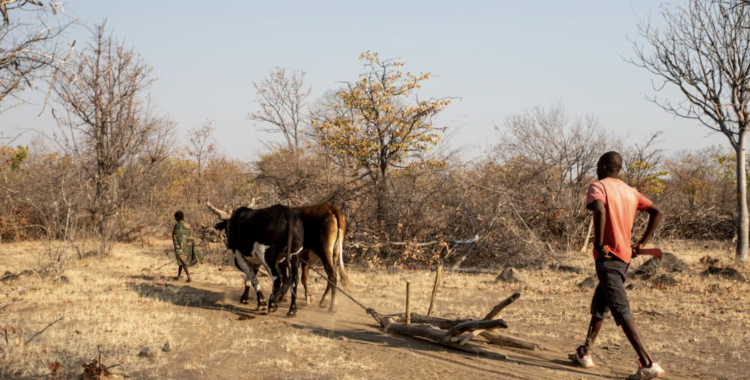The priest, who calls for a serious and swift decision from President João Lourenço, insisted that hunger, resulting from the drought in the region in the south of Angola (which comprises the provinces of Huíla, Namibe and Cunene) "always justifies the declaration of a State of Emergency ".
"When the drought began in force in 2012, it already found vulnerabilities, because if it had found a situation in which the community had the means to survive it would not have suffered so much, there was already vulnerability, poverty, social exclusion, lack of means of livelihood or livelihood fragile areas, in terms of health, education, food security, and then, when climate change came, it only worsened the situation", said Padre Pio.
Speaking on the sidelines of a "Social Concertation Meeting on Human Rights in Angola", taking place in Luanda, promoted by the Bar Association, the Catholic priest said that hunger and food insecurity are forcing young Angolans to flee to Namibia.
"Most of these [young people from Angola] herd local cattle or work in vegetable gardens, gardening, others carry artefacts that they sell, troughs", said the parish priest of Nossa Senhora de Fátima do Chiange, municipal headquarters of Gambos , province of Huíla.
Many young Angolans who flock to Namibia, added the priest, survive on food from containers, "which is a very serious situation", he noted, adding that others are being recruited to work on farms in a situation of "almost slavery", without advancing numbers.
"Yes, there are people who are being recruited to work on farms and as they do not have documentation it is easier to exploit than those with documentation, who do not have any contract, and spend their lives working for the farms", he responded to Lusa.
Pio Wakussanga reported that the reduced rain that fell in the southern region of Angola, especially in some areas of Huíla and Cunene, did not guarantee food reserves for the populations, lamenting the vulnerabilities and existence of semi-desert villages due to lack of precipitation.
One million, three hundred thousand people in Angola, 4 percent of the population, faced high levels of acute food insecurity in 2023, and the situation is expected to worsen in 2024, according to the recently released World Food Crisis Report.
For Padre Pio, also president of the Associação Construindo Comunidades, the aforementioned numbers "are modest".
"The number must be much higher and, therefore, the situation is worrying and then, all this time, since 2012, people being impacted by the lack of consistent rain have created vulnerabilities, there are villages that are semi-desert", he lamented.
The Catholic official considered that the problem of food insecurity in the southern region of Angola "needs a response on a national scale", even asking the President for intervention for a "serious and rapid" decision.
"There is a lack of political will, because it is the President of the Republic who in this crisis situation has to assume himself as head of State for everyone. So, he has to take a serious and swift decision of State to be able to address the problem", he concluded.
Father Pio Wakussanga is the winner of the "Defender of Human Rights 2018" award, awarded by a South African organization.







